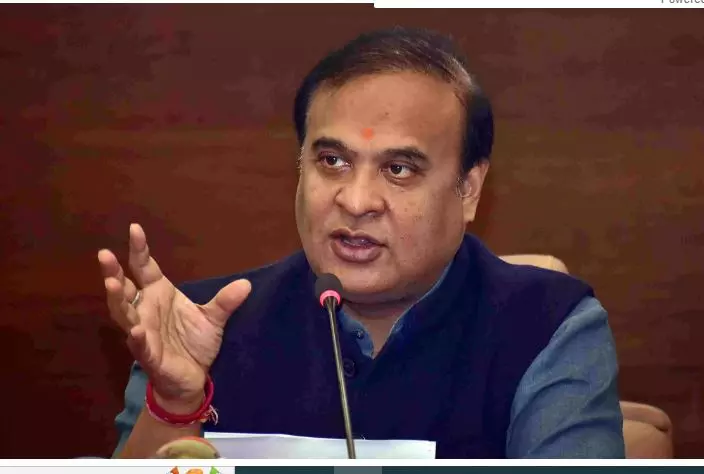
Assam sets 3 children condition for financial support for women under new scheme
text_fieldsThe Assam government has announced new financial support for women, but with the condition that the benefit will only be available to those women who have a maximum of three children.
Chief Minister Himanta Biswa Sarma launched the Mukhyamantri Mahila Udyamita Abhiyaan (MMUA) and declared that his state would be the third in the country, after Gujarat and Uttarakhand, to introduce the Uniform Civil Code.
Under the MMUA scheme, women from general and OBC categories are restricted to having a maximum of three children to avail of the benefits. Meanwhile, women from Scheduled Tribes (STs) and Scheduled Castes (SCs) can have up to four children. The Moran, Motok, and 'tea tribes,' seeking ST status, are also subjected to a four-child cap.
Assam would become the third state after Uttarakhand and Gujarat to introduce a Uniform Civil Code, as stated by Chief Minister Himanta Biswa Sarma.
Sarma emphasized that gradually, all state government beneficiary schemes would be linked to population norms, aligning with the two-child policy announced in 2021 for specific state-funded schemes.
The MMUA scheme targets women in self-help groups in rural areas, aiming to help them develop into "rural micro-entrepreneurs" with an annual income goal of Rs 1 lakh per member. The child limit, according to Sarma, is intended to ensure that women use the funds for their businesses rather than being preoccupied with childcare responsibilities.
Despite controversies, the Assam government has relaxed the child limit for the MMUA scheme for now. Sarma noted that a four-member committee was formed in May to examine the legality of the move.
The Chief Minister mentioned that the government is awaiting the introduction of the Uniform Civil Code bill in Uttarakhand and Gujarat. Once those bills are presented, Assam intends to follow suit with certain modifications, taking into account issues such as child marriage and polygamy. However, tribal communities would be exempted from the proposed legislation.
Approximately 5 lakh out of 39 lakh women involved in self-help groups in rural Assam is expected to be excluded from the MMUA scheme due to the child limit. The government has prepared 145 business plans, from which eligible women can choose to receive the grant. In the initial year, beneficiaries fulfilling the criteria will receive Rs 10,000, followed by Rs 12,500 each from the government and a bank loan in the subsequent two years.
In addition to the child limit, two other conditions must be met by beneficiaries: enrolling girl children in school and ensuring the survival of trees planted under the government's tree plantation drive, Amrit Brikshya Andolan.
The Assam government's move aligns with the Population and Women Empowerment Policy of Assam, established in 2017 by the previous BJP government. This policy dictates that individuals with more than two children are ineligible for government jobs, a condition extended to the MMUA scheme.
The Uniform Civil Code, aimed at providing a common set of laws for marriage, divorce, succession, and adoption, has long been on the Bharatiya Janata Party's agenda. While the BJP claims the proposed law ensures equality and justice, tribal-majority states in the North East express concerns over potential infringements on their traditional way of life.
The introduction of the Uniform Civil Code gained momentum after the Law Commission sought public and religious group opinions in June. Prime Minister Narendra Modi subsequently voiced support for the initiative. Despite the push from the BJP, tribal-majority states in the North East continue to resist the proposed legislation.























